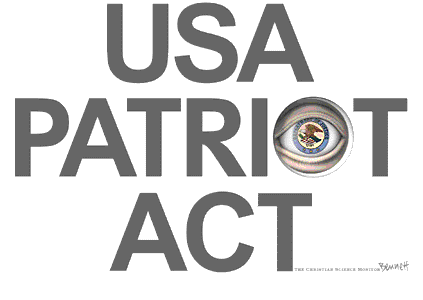THE "INCOMPREHENSIBLE" ESPIONAGE ACT OF 1917
In its efforts to punish unauthorized disclosures of classified information to the media, the US Government is turning to the Espionage Act of 1917 (18 U.S.C. 793) which, among other things, prohibits "communication of national defense information to persons not entitled to receive it."
The Act may also be employed by the special prosecutor investigating the unauthorized disclosure of the identity of CIA officer Valerie Plame, according to news reports. But using the Espionage Act to prosecute leaks to the press is an extraordinary step with potentially profound ramifications. In fact, the precise meaning of the Act is uncertain and experts argue that it cannot mean what it says.
The Espionage Act is "in many respects incomprehensible," wrote Harold Edgar and Benno C. Schmidt, Jr. in a definitive study three decades ago ("The Espionage Statutes and Publication of Defense Information," Columbia Law Review, May 1973, vol. 73, pp. 929-1087). As written, the espionage statutes are "so sweeping as to be absurd," wrote Edgar and Schmidt. "The source who leaks defense information to the press commits an offense; the reporter who holds onto defense material commits an offense; and the retired official who uses defense material in his memoirs commits an offense."
Therefore, it appears that if government officials are liable for unauthorized communications of defense information under the Act, then reporters and other members of the public should be as well-- which would be plainly unconstitutional. Conversely, if reporters cannot be held liable under the Act for communicating defense information to the public, as they do all the time, neither can government officials.
http://www.fas.org/sgp/news/secrecy/2005/10/101905.htmlThe Espionage Act - June 15, 1917
Section 3. Whoever, when the United States is at war, shall willfully make or convey false reports or false statements with intent to interfere with the operation or success of the military or naval forces of the United States or to promote the success of its enemies and whoever when the United States is at war, shall willfully cause or attempt to cause insubordination, disloyalty, mutiny, refusal of duty, in the military or naval forces of the United States, or shall willfully obstruct the recruiting or enlistment service of the United States, to the injury of the service or of the United States, shall be punished by a fine of not more than $10,000 or imprisonment for not more than twenty years, or both.
http://www.thirdworldtraveler.com/Civil_Liberties/Espionage_Act_1917.html
